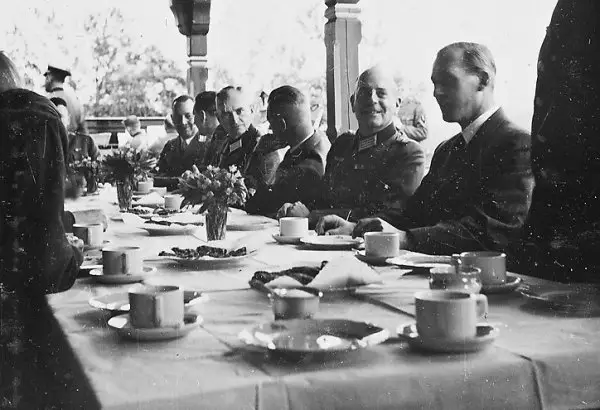This Is Why The Nazi Party Loved Drinking Decaf Coffee
Tags: opinion

Around six centuries ago, the coffee that we are now used to consuming every day started appearing on tables across the world. It was a brilliant replacement because earlier versions were not very strong and they ranged from tea made with coffee beans to mixtures of animal fats and beans. Those who didn’t want the rush from drinking coffee had to look for alternatives like chicory which had the bitterness and smell of coffee. Then a hundred and fourteen years ago, in Germany, Ludwig Roselius, who had completed his apprenticeship with a coffee roaster, created a tasty substitute for coffee without caffeine.
Though a lot of elitists might rudely dismiss decaf today, it is still very popular worldwide. When he first invented it, decaf found a rather strange group of fans – the Nazi Party. They considered caffeine to be poisonous for health and so decaf became their perfect substitute. This was in keeping with the party’s goal of ensuring that Aryan people stayed in good health.
There are varying accounts about the true origin of decaf. While Roselius is a constant in most accounts, different versions of the event vary; from him creating it to prevent others from meeting the same fate as his father who had died due to a caffeine overdose to him creating it by accident when he received a load of beans that had been exposed to marine waters and realized that the water had neutralized the effect of the caffeine without actually impairing the taste.
Regardless of how it happened, Roselius obtained the patent for his creation in 1905 and set up Kaffee Handels-Aktiengesellschaft, or Kaffee HAG, to market it throughout the country and then across the world. In the post World War I period, Roselius advertised his product in such a way that it fit in with the culture of fitness that had taken Germany by storm. Ads showed that decaf was good for the cardiac and the nervous systems.
One of these health movements was the Lebensreform or Life Reform movement which advocated casting aside modern medicine for ancient practices and diets. Followers had to swear off alcoholic beverages, non-vegetarian food, tobacco, and caffeine. Several eminent Nazi scientists also backed this movement.
The Nazis saw decaf as a substitute for an addictive substance and so it was incorporated into state health policies. They saw it as their obligation to ensure that the people of Germany or rather the Aryan, heterosexual people of Germany, remained hale and hearty. As part of the campaign against caffeine, the Party published information about its dangers. For example in the Hitler Youth Handbook of 1941, it was stated that caffeine was poisonous, especially for the youth. By that time, decaf was sold everywhere but there were still strict regulations on it.
But the extent to which the Nazis are responsible for decaf’s successful beginnings is not very clear. Most of their campaigns against tobacco and alcohol did not have much of an impact and Kaffee HAG had marketed decaf as a luxury good. And outside Germany, decaf attained immense popularity in the 1920s and 1930s.
It is also doubtful where Kaffee HAG’s political inclinations lay. Roselius famously stated in 1932 that all their customers were important to the company regardless of their religion and their politics. The company even marketed it as a Kosher product for their Jewish customers. In ‘Creating A Nazi Marketplace’, Jonathan Wiesen wrote on the connection between the Nazis and the rise of Kaffee HAG. Wiesen points out several party events where decaf coffee and other drink products by Kaffee HAG were served. And Roselius also came out in support of the Fuhrer.
Ironically, though the Party promoted decaf for its health benefits, they didn’t realize that they were being poisoned by the residual benzene in the drink that was a side effect of the method Roselius used to make decaf. And though they saw caffeine as unhealthy, they were happy to promote chocolate spiked with methamphetamine because it made people more productive. People were encouraged to consume up to nine of those chocolates every day because they were thought to have no ill effects.
Featured Image description: Members of the Nazi party in Norway, 1942. during a visit by the Reichskommissar Josef Terboven.
Image credit: Riksarkivet
Editors note: This article was originally published on

Leave Comment: